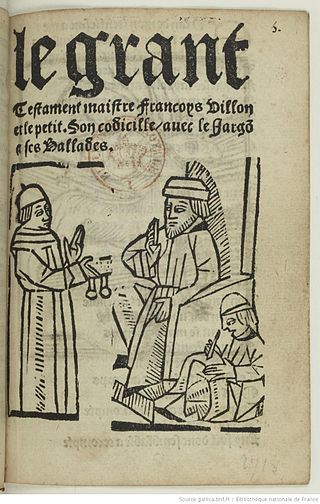
The Romani people, also known as the Roma, are an Indo-Aryan ethnic group who traditionally lived a nomadic, itinerant lifestyle. Linguistic and genetic evidence suggests that the Romani people originated in the Indian subcontinent, in particular the region of Rajasthan. Their first wave of westward migration is believed to have occurred sometime between the 5th and 11th centuries. They are thought to have first arrived in Europe sometime between the 9th and 14th centuries. Although they are widely dispersed, their most concentrated populations are believed to be in Bulgaria, Hungary, Romania, Serbia and Slovakia.

A backronym is an acronym formed from an already existing word by expanding its letters into the words of a phrase. Backronyms may be invented with either serious or humorous intent, or they may be a type of false etymology or folk etymology. The word is a portmanteau of back and acronym.
Romani is an Indo-Aryan macrolanguage of the Romani people. The largest of these are Vlax Romani, Balkan Romani (600,000), and Sinte Romani (300,000). Some Romani communities speak mixed languages based on the surrounding language with retained Romani-derived vocabulary – these are known by linguists as Para-Romani varieties, rather than dialects of the Romani language itself.

Romani music is the music of the Romani people who have their origins in northern India but today live mostly in Europe.

The Sinti are a subgroup of Romani people. They are found mostly in Germany, France and Italy and Central Europe, numbering some 200,000 people. They were traditionally itinerant, but today only a small percentage of Sinti remain unsettled. In earlier times, they frequently lived on the outskirts of communities.
Pikey is an ethnic slur referring to Gypsy, Roma and Traveller people. It is used mainly in the United Kingdom and in Ireland to refer to people who belong to groups which had a traditional travelling lifestyle. Groups referred to with this term include Irish Travellers, English Gypsies, Welsh Kale, Scottish Lowland Travellers, Scottish Highland Travellers, and Funfair Travellers. These groups consider the term to be extremely offensive.

A shiv, also chiv, schiv, shivvie or shank, is a handcrafted bladed weapon resembling a knife that is commonly associated with prison inmates.
Boyash or Bayash are a Romani ethnic group living in Romania, Moldova, southern Hungary, northern Croatia, northern Serbia, Slovakia, the Balkans, but also in the Americas. Alternative names are Rudari (Ludari), Lingurari and Zlătari.
Angloromani or Anglo-Romani is a Para-Romani dialect spoken by the Romanichal, a subgroup of the Romani people in the United Kingdom and other parts of the English-speaking world. It is characterised by the presence of Romani vocabulary and syntax in the English used by Romanichal.

Thieves' cant is a cant, cryptolect, or argot which was formerly used by thieves, beggars, and hustlers of various kinds in Great Britain and to a lesser extent in other English-speaking countries. It is now mostly obsolete and used in literature and fantasy role-playing, although individual terms continue to be used in the criminal subcultures of Britain and the United States.
Caló is a language spoken by the Spanish and Portuguese Romani ethnic groups. It is a mixed language based on Romance grammar, with an adstratum of Romani lexical items, through language shift by the Romani community. It is said to be used as an argot, or a secret language, for discreet communication amongst Iberian Romani. Catalan, Galician, Portuguese, and Spanish caló are closely related varieties that share a common root.

The Romanichal are a Romani subgroup within the United Kingdom and other parts of the English-speaking world. Many Romanichal speak Angloromani, a mixed language that blends Romani vocabulary with English syntax. Romanichal residing in England, Scotland, and Wales are part of the Gypsy (Romani), Roma, and Traveller community.

The Romanisael, are a Romani subgroup who have been resident in Sweden and Norway for some 500 years. The estimated number of Romanisael in Sweden is 65,000, while in Norway, the number is estimated to be around 10,000.
In Romani culture, a gadjo (masculine) or gadji (feminine) is a person who has no Romanipen. This usually corresponds to not being an ethnic Romani, but it can also be an ethnic Romani who does not live within Romani culture. It is often used by Romanies to address or denote outsider neighbors living within or very near their community.
British slang is English-language slang originating from and used in the United Kingdom and also used to a limited extent in Anglophone countries such as India, Malaysia, Ireland, South Africa, Australia, Canada, and New Zealand, especially by British expatriates. It is also used in the United States to a limited extent. Slang is informal language sometimes peculiar to a particular social class or group and its use in Britain dates back to before the 15th century. The language of slang, in common with the English language, is changing all the time; new words and phrases are being added and some are used so frequently by so many, they almost become mainstream.
Scottish Romani are the Romani people of Scotland. This includes Romanichal and Lowland Romani.
The Romani people are known by a variety of names, mostly as Gypsies, Roma, Romani, Tsinganoi, Bohémiens, and various linguistic variations of these names. There are also numerous subgroups and clans with their own self-designations, such as the Sinti, Kalderash, Boyash, Manouche, Lovari, Lăutari, Machvaya, Romanichal, Romanisael, Calé, Kale, Kaale, Xoraxai, Xaladytka, Romungro, Ursari and Sevlengere.
Dick is a common English slang word for the human penis. It is also used by extension for a variety of slang purposes, generally considered vulgar, including as a verb to describe sexual activity and as a pejorative term for individuals who are considered to be rude, abrasive, inconsiderate, or otherwise contemptible. In this context, it can be used interchangeably with jerk, and can also be used as a verb to describe rude or deceitful actions. Variants include dickhead, which literally refers to the glans. The offensiveness of the word dick is complicated by the continued use of the word in inoffensive contexts, including as both a given name and a surname, the popular British dessert spotted dick, the novel Moby-Dick, the Dick and Jane series of children's books, and the American retailer Dick's Sporting Goods. Uses such as these have provided a basis for comedy writers to exploit this juxtaposition through double entendre.

Romani people have been recorded in the United Kingdom since at least the early 16th century. There are estimated to be around 225,000 Romani people residing in the UK. This includes the Romanichal, Kale, Scottish Lowland Romani and a sizeable population of Roma from Central and Eastern Europe, who immigrated into the UK in the late 1990s/early 2000s and after EU expansion in 2004. They are considered part of the Gypsy (Romani), Roma and Traveller (GRT) community.
The Romany Rye is a melodramatic play, by George R. Sims, first produced in London in 1882 at the Princess's Theatre, produced by and starring Wilson Barrett. The play was staged following the hugely successful The Lights o' London by the same author and producer. Whilst it failed to gather the same positive critical reception, and did not reach the success of the predecessor, it still ran for 138 performances in London before setting out on a regional tour.








